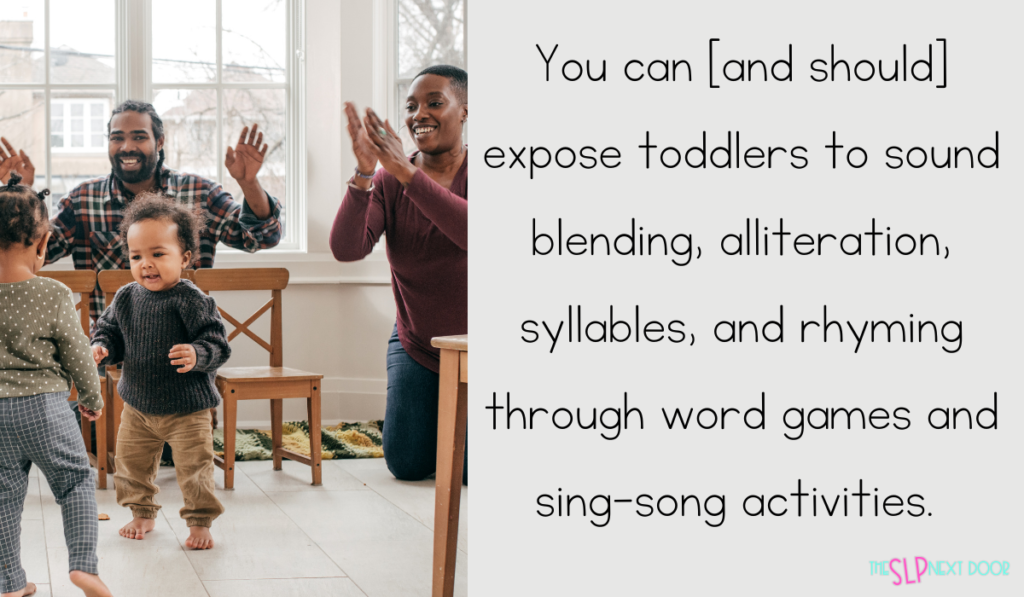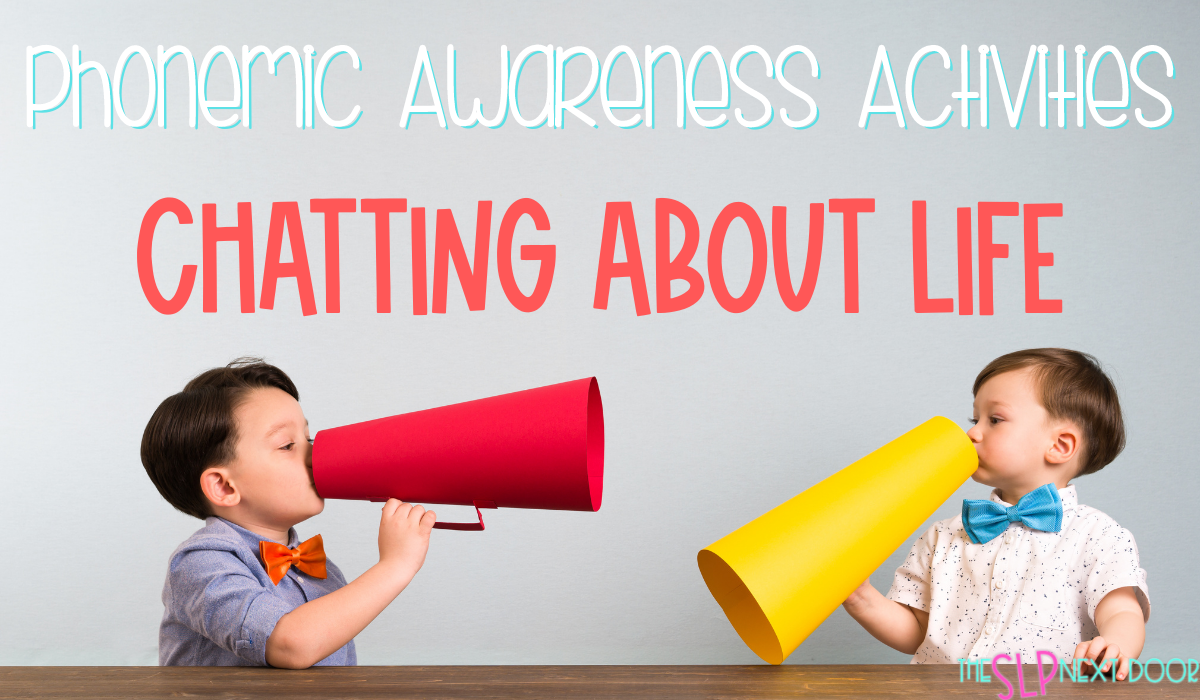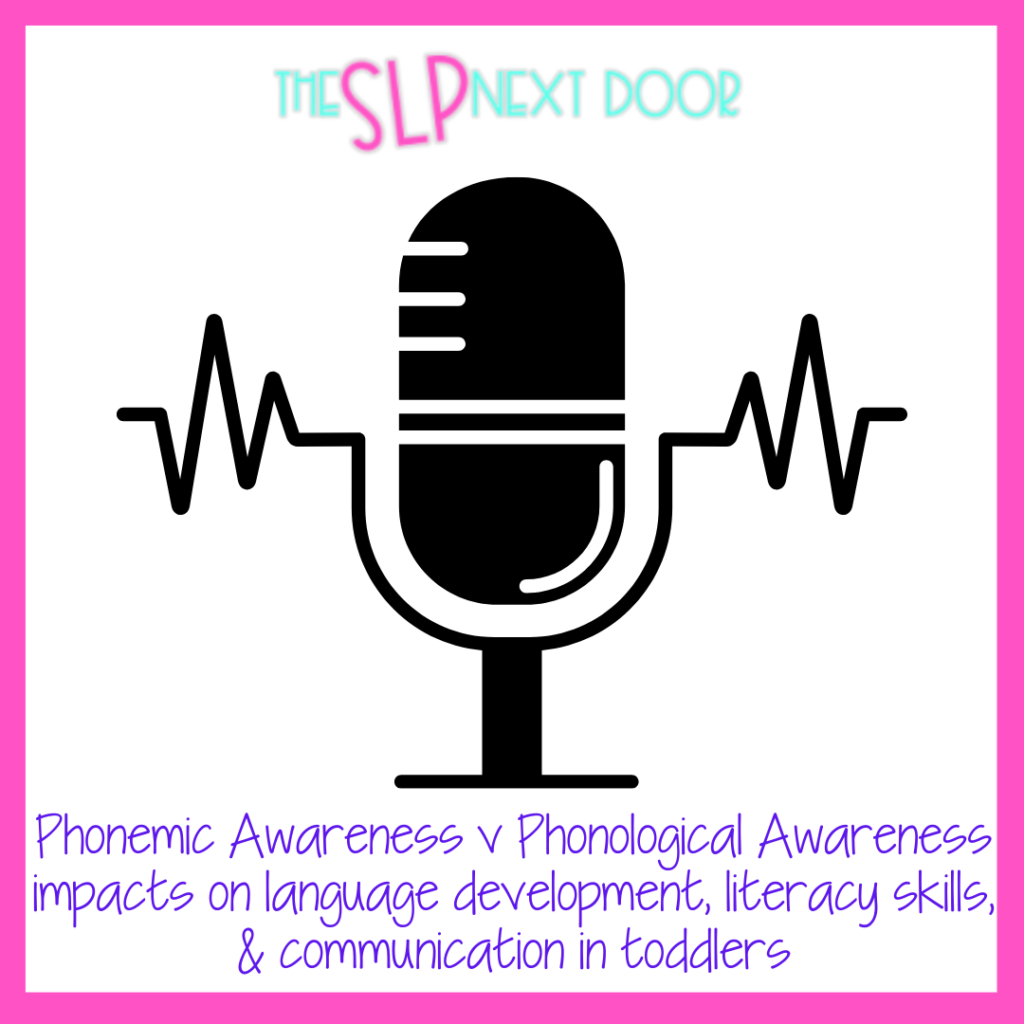Today we are going to talk about narrating life. Sounds exciting, right? Talking and singing in toddler activities is one of the simplest (and most effective) techniques when it comes to speech therapy for toddlers.
What’s phonemic awareness?
Phonemic awareness is the ability to make different phonemes into spoken words.
This tends to happen naturally as toddlers develop. Beginning in infancy, babies babble and begin to combine different sounds together. As they grow, they begin to imitate sounds in their environment (animal sounds, partial words). These syllables eventually become longer and formulate into complete words.
Phonemic awareness is important! Teaching children to put different phonemes together to form words is extremely important for their future reading and spelling!
Phonemic Awareness Activities and Daily Routines
You know, I used to tell people to “be the Morgan Freeman” of your child’s life. He narrates a lot of documentaries and the actions that others are doing…but he’s kind of monotone. I’m beginning to think a better way to describe it is – be the Mrs. Rachel of your child’s life. Mrs. Rachel is happy, animated, and engaging to toddlers because her songs are catchy and she introduces them to new things.
Be animated, exciting, engaging, and fun!

If you or the parent are not accustomed to talking this way, doing it can feel completely ridiculous. That’s okay. But I promise, the day that toddlers start responding back to you or imitating…it changes everything.
Social Exchanges Make the Difference
You can also provide meaningful language and communication to the task by using functional vocabulary and providing opportunities for toddlers to respond. Don’t forget to react to their response.
Responses don’t have to be verbal; responses can be as simple as a toddler looking at an object you are talking about, turning their head and looking your direction, pointing, or vocalizing in response to what you are saying.
What can talking (and singing) do?
Talking through activities exposes toddlers to different aspects of language and communication development: prosodic features, descriptors, expanding utterances, vocabulary recognition, and conversational exchange! Not to mention there are also major benefits for speech sound development…
- Encourages phonemic & phonological awareness through language exposure
- Build communication skills
- Vocabulary development
- Increases attention and listening skills
- Joint attention
- Memory skills
- Turn-taking
- Answering and asking questions
- Environmental awareness (being aware of the world around them)
- Nonverbal communication (facial expressions, gestures, etc.)
This strategy can easily be implemented into any routine so parent carry-over is a breeze! You can encourage parents to talk to their toddlers and show them how to read books and play using exciting and different voices. The next time you find yourself in the middle of a daily routine, talk and sing about it!
If you’ve missed out: here’s a blog post about phonemic awareness v phonological awareness and here is a post about phonological processes in toddlers.
Looking for some word-building activities? Check out this bundle!




2 Responses